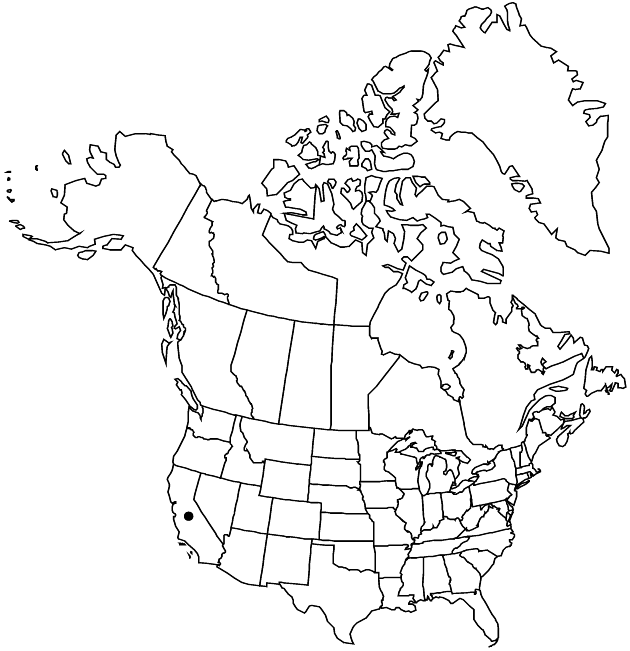Difference between revisions of "Lasthenia fremontii"
Man. Bot. San Francisco, 204. 1894.
RevisionBot (talk | contribs) m (Bot: Adding category Revised Since Print) |
RevisionBot (talk | contribs) m (Bot: Adding category Revision Pending) |
||
| Line 74: | Line 74: | ||
[[Category:Lasthenia sect. Ornduffia]] | [[Category:Lasthenia sect. Ornduffia]] | ||
[[Category:Revised Since Print]] | [[Category:Revised Since Print]] | ||
| + | [[Category:Revision Pending]] | ||
Revision as of 20:44, 4 August 2020
Annuals, to 35 cm. Stems erect, branched proximally, glabrous proximally, ± hairy distally. Leaves linear, 10–60 × 1–2+ mm (simple blades or single lobes), margins entire or with 1–3 pairs of linear lobes, faces glabrous or sparsely hairy. Involucres hemispheric or obconic, 4–7.5 mm. Phyllaries 8–16 (distinct), ovate, hairy. Receptacles dome-shaped, muricate, hairy. Ray florets 6–13; laminae oblong to oval, 5–7 mm. Anther appendages linear to narrowly ovate. Cypselae black or gray, clavate, to 1.5 mm, usually scabrous, rarely glabrous; pappi usually of (3–)4(–5) subulate, aristate scales plus 3–5+ shorter, ± subulate scales or teeth, rarely of aristate scales only, or 0. 2n = 12.
Phenology: Flowering Mar–May.
Habitat: Vernal pools and wet meadows
Elevation: 0–700 m
Discussion
Pappose and epappose plants of Lasthenia fremontii sometimes occur together. The ranges of L. fremontii and L. conjugens overlap slightly; the two species sometimes occur together.
Selected References
None.
